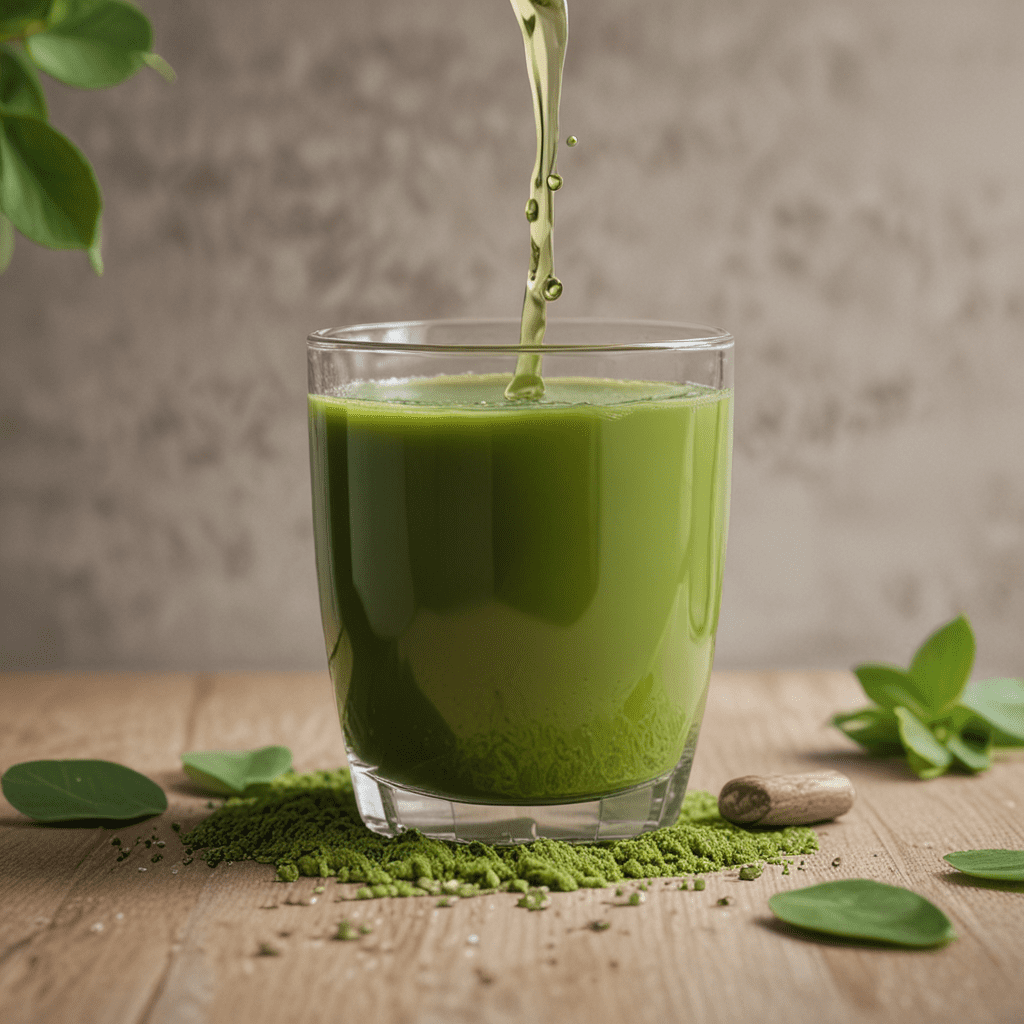
1. Introduction: Matcha and Liver Detoxification
In the realm of natural health, matcha, a vibrant green tea powder from Japan, has gained prominence for its purported liver detoxification benefits. Matcha's unique composition sets it apart from other green tea varieties, making it an intriguing contender in the field of liver health. This article delves into the connection between matcha and liver detoxification, exploring the underlying mechanisms that contribute to its support for this vital organ.
2. Understanding Matcha: A Unique Green Tea Variant
Matcha is meticulously crafted from shade-grown tea leaves, which increases its chlorophyll and antioxidant content. Unlike traditional green tea, where the leaves are steeped and discarded, matcha involves consuming the entire leaf, resulting in a concentrated delivery of nutrients. These nutrients, including polyphenols and catechins, are believed to play a significant role in supporting liver detoxification.
3. The Liver: Functions and Role in Detoxification
The liver is a pivotal organ in human physiology, with over 500 known functions. Its primary role in detoxification involves processing and eliminating harmful substances from the body. The liver filters blood, removing toxins, metabolic waste products, and excess hormones. A healthy liver is essential for maintaining overall well-being and preventing the accumulation of toxins that can compromise health.
4. Matcha’s Antioxidants and Protective Effects
Matcha's abundance of antioxidants, primarily catechins, acts as a protective shield against oxidative damage in the liver. Oxidative stress, caused by an imbalance between free radicals and antioxidants, can contribute to liver inflammation and damage. Matcha's antioxidants neutralize free radicals, mitigating their harmful effects and safeguarding liver health.
5. Chlorophyll and Liver Support
Chlorophyll, the green pigment that gives matcha its vibrant hue, has also been linked to liver support. Studies suggest that chlorophyll can bind to toxins in the digestive tract, preventing their absorption and reducing the burden on the liver. Additionally, chlorophyll is believed to stimulate bile production, facilitating the elimination of waste products and supporting liver detoxification.
6. Liver Enzymes and Matcha Consumption
Matcha's influence extends to liver enzyme activity. Studies have shown that consuming matcha may help reduce elevated liver enzymes, such as alanine aminotransferase (ALT) and aspartate aminotransferase (AST), which are indicators of liver damage. By maintaining healthy liver enzyme levels, matcha supports the liver's ability to function optimally.
7. Improving Bile Flow with Matcha
Bile is a fluid produced by the liver that aids in the digestion and absorption of fats. Matcha's stimulatory effect on bile flow enhances the liver's capacity to eliminate waste products and toxins from the body. Improved bile flow also supports the breakdown and removal of cholesterol, contributing to overall liver health.
8. Matcha and Gut Health: Impact on Liver Detox
The gut and liver are closely interconnected. A healthy gut microbiome promotes liver detoxification by breaking down toxins and reducing the burden on the liver. Matcha's polyphenols and antioxidants support the growth of beneficial bacteria in the gut, improving gut health and indirectly benefiting liver function.
9. Tips for Incorporating Matcha into a Liver Detox Plan
Incorporating matcha into a liver detox plan is straightforward. Begin by gradually introducing matcha into your daily routine. Start with one cup per day and gradually increase to two to three cups as tolerated. Prepare matcha by whisking one teaspoon of matcha powder into hot water. For enhanced flavor and nutritional value, add matcha to smoothies, green tea lattes, or baked goods.
10. Conclusion: Matcha’s Role in Supporting Liver Detoxification
Matcha, with its wealth of antioxidants, chlorophyll, and liver-supporting compounds, plays a significant role in promoting liver detoxification. By neutralizing free radicals, protecting against oxidative damage, stimulating bile flow, improving gut health, and regulating liver enzymes, matcha empowers the liver to effectively eliminate toxins and maintain optimal health. Incorporating matcha into a balanced diet can be a proactive measure to support liver function and contribute to overall well-being.
FAQs
Q: How much matcha should I consume for liver detoxification?
A: Start with one cup per day and gradually increase to two to three cups as tolerated.
Q: Can matcha help reduce elevated liver enzymes?
A: Studies have shown that consuming matcha may help lower liver enzymes, indicating improved liver function.
Q: How does matcha improve gut health?
A: Matcha's polyphenols support the growth of beneficial gut bacteria, which indirectly benefits liver detoxification.
Q: Is matcha safe for daily consumption?
A: Generally, matcha is safe for daily consumption. However, it's best to consult with a healthcare professional if you have any concerns.
